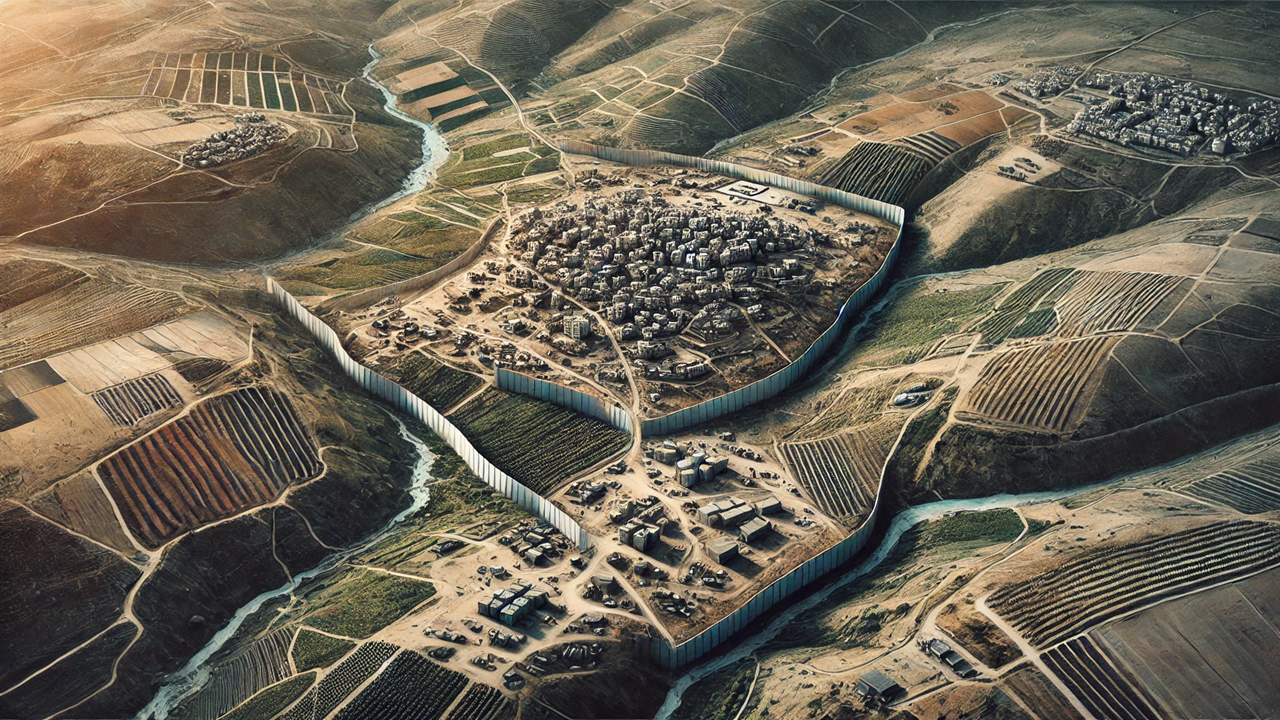The Hidden Costs of Occupation in the West Bank
The report "Occupation, Fragmentation, and Poverty in the West Bank," published by the United Nations Development Programme (UNDP), reveals how Israeli control over Area C restricts Palestinian development and perpetuates poverty. It emphasizes the urgent need for policy interventions to unlock economic potential and foster sustainable growth in the region.

The recent report titled "Occupation, Fragmentation, and Poverty in the West Bank", published by the United Nations Development Programme (UNDP), sheds light on the profound economic and social challenges faced by Palestinians living under Israeli control in Area C of the West Bank. This analysis highlights the fragmentation caused by occupation policies, the resulting poverty, and the unrealized potential of a region rich in resources and opportunities.
A Region Divided: The Geopolitical Context
The West Bank, divided into Areas A, B, and C under the Oslo Accords, illustrates a stark reality of unequal control. Area C, which encompasses more than 60% of the territory, remains under full Israeli administrative and security jurisdiction. This section of the West Bank houses its most fertile lands, abundant water reserves, and significant natural resources, yet these assets remain largely inaccessible to Palestinians.
The systematic fragmentation of the region through barriers, checkpoints, and stringent permit systems has turned Area C into a series of isolated enclaves. Palestinians face significant obstacles in movement, trade, and development, further perpetuating economic disparities within the territory.
The Economic Toll of Fragmentation
The report identifies Area C as an "adverse economic zone," where restrictive policies have stifled investment and growth. Despite its vast potential, less than 1% of Palestinian construction permits are approved, leaving many communities unable to build homes, infrastructure, or businesses. As a result, the economic cost of these restrictions is staggering. In 2017 alone, lifting these barriers could have increased Palestinian household expenditures by an estimated $4.4 billion—a 57% boost.
These restrictions not only curb individual prosperity but also hinder broader economic development. Palestinian businesses in the region struggle with limited access to markets and resources, exacerbating unemployment and poverty rates.
Poverty and Inequality: A Stark Reality
The impact of occupation policies is most visible in the stark poverty levels in and around Area C. While some parts of the West Bank have seen modest economic growth, many communities in Area C remain trapped in a cycle of poverty. Between 2011 and 2017, average expenditures per adult increased by 28% in the West Bank, but these gains were uneven, with Area C consistently lagging.
The economic isolation has disproportionately affected Palestinian households, leaving them with fewer opportunities and limited social mobility. The disparity between communities underscores the urgency of addressing systemic inequality in the region.
The Path Forward: Unlocking Economic Potential
The report envisions a transformative future for the West Bank, one that relies on reclassifying land from Area C to Areas A or B and lifting restrictive measures. Such steps could catalyze economic development, reduce poverty, and foster a sense of hope and opportunity for Palestinians.
Moreover, full economic liberalization and the cessation of occupation-related restrictions could pave the way for broader sustainable development, aligning with the two-state solution proposed by the United Nations. This would not only empower local communities but also contribute to regional stability.
Recommendations for Change
To address these challenges, the report offers clear recommendations:
For Israel: End occupation-related restrictions, halt settlement expansion, and facilitate Palestinian access to land and resources.
For the International Community: Enforce United Nations resolutions, provide financial and technical support to Palestinian development efforts, and advocate for a just and sustainable resolution.
For Palestinian Policymakers: Develop policies that maximize economic potential, address inequality, and build resilient communities in liberated areas.
A Call to Action
The findings of "Occupation, Fragmentation, and Poverty in the West Bank", published by the United Nations Development Programme (UNDP), underscore the urgent need for coordinated action at local, regional, and international levels. The economic and social costs of occupation are too significant to ignore. By addressing these challenges and unlocking the West Bank's true potential, stakeholders can create a pathway to peace, prosperity, and sustainable development.
- FIRST PUBLISHED IN:
- Devdiscourse










